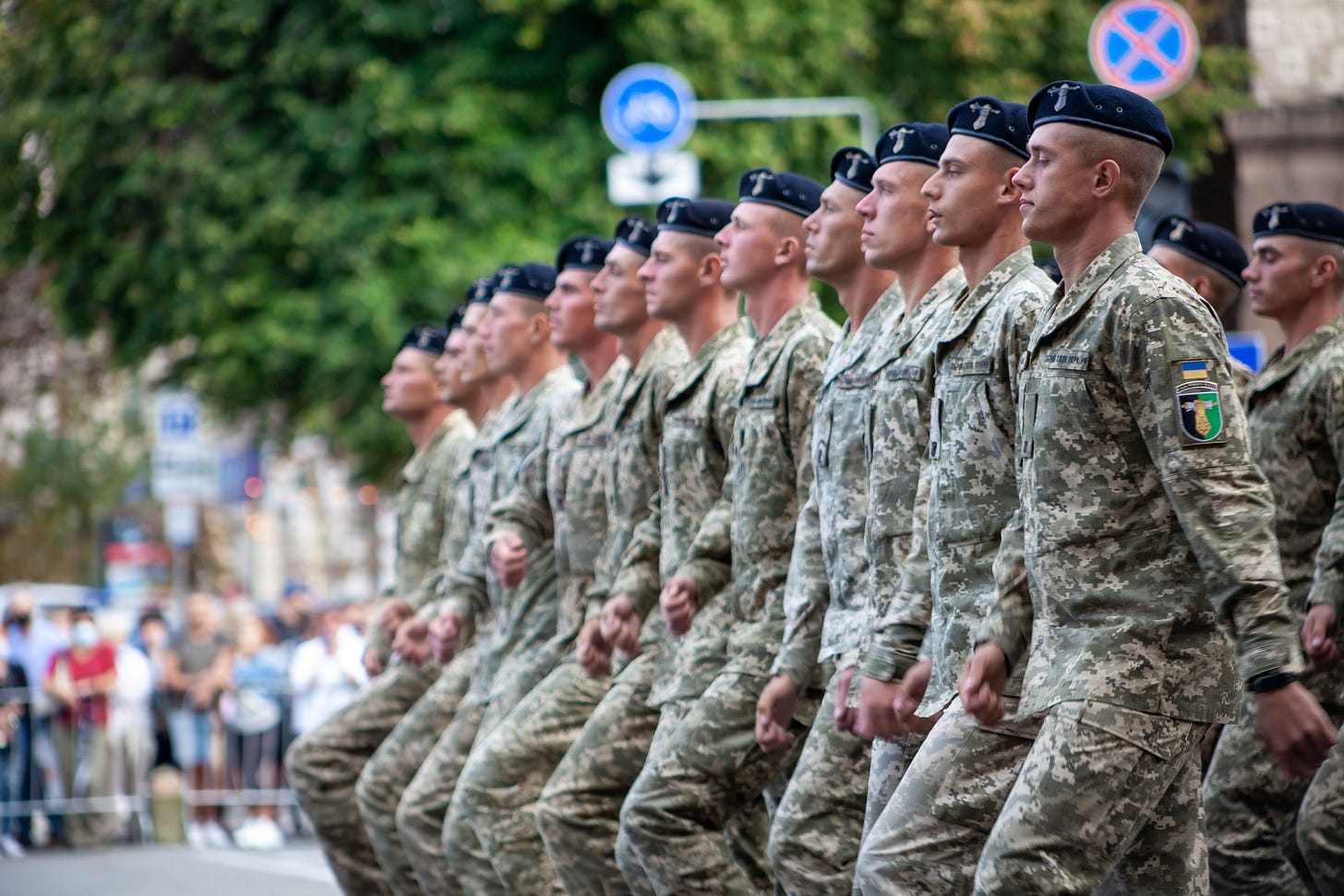Owen West: Those Who Answer the Call
TFP guest columnist and third-generation Marine, Owen West, on the universal instinct to defend and protect one's freedom and homeland.
By Owen West
To those who fought in Iraq and Afghanistan, the images of Ukrainian volunteers sending their families to Poland while remaining behind to fight is inspirational—and familiar. Every nation needs a warrior class. When war breaks out, a public call-to-arms is unnecessary for this group. The urge to protect and defend is overwhelming.
This instinct was passed down by my father. It was first revealed to me in the fifth grade, when I chose to write a book report on his Vietnam War classic The Village, the firsthand account of a handful of Marines who volunteered to live in a small village that was in danger of being overrun by Viet Cong. Half of the Marines died protecting the village.
At the time, Vietnam didn’t interest me as much as Stephen King horror novels. I figured The Village would be a bit boring because it was nonfiction, but that the family connection would lead to a good grade. I was wrong on both fronts. Seeing the pictures of the Marines, arm-in-arm with Vietnamese farmers holding rifles, I was hooked. I wrote a report about friends who did not share a language willing to die together for a few huts and rice paddies. The Marine volunteers could have remained in bigger American units. The villagers could have fled to a city. I received a B. In 1980, even elementary school teachers were not ready to accept a story about valor in Vietnam.
“A recent Quinnipiac poll found that, if faced with the same situation as Ukrainian citizens, 55% of Americans said they would stay and fight while 35% said they would leave the country. This triggered dozens of op-eds and commentary about national weakness. For perspective, just a tenth of 1% of Americans volunteer for the infantry. If 55% of American civilians would grab a rifle and fight invaders, that’s plenty. We don’t know the numbers in Ukraine. But the inspirational stand of their citizenry demonstrates that free will fuels the urge to fight and defend.”
The low grade surprised me, but not as much as the epilogue. In the last pages of The Village, my father briefly recounts journeys back to Vietnam to check on the villagers in 1969, 1970 and 1971. I was born in 1969. My brother in 1971. What kind of crazy person would return to Vietnam three times with young kids? The only clue I had was that he was a third-generation infantry Marine. Apparently, that’s what Marines did.
Keep reading with a 7-day free trial
Subscribe to The First Person with Michael Judge to keep reading this post and get 7 days of free access to the full post archives.


